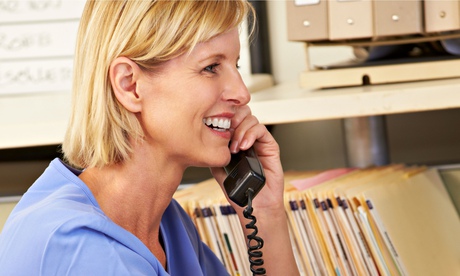
A&E cannot mean "anything and everything", says the College of Emergency Medicine. Last week a survey revealed that nearly one in five patients in England admit they have misused accident and emergency at some point – and departments are struggling to cope with ever-increasing numbers. The role of A&E is to deal with acute severe illness or injury, but as many as 50% of patients could be managed elsewhere. However, you can hardly blame the public for pitching up, when most people simply don't know what else to do, or where else to go when they or their children are ill. So what are the options?
In working hours
8am-6.30pm, Monday to Friday
General practitioner
If you have an urgent health problem that isn't life-threatening, this is where you should go. GPs are trained generalists and can advise on, and treat, a wide variety of problems. Practices should have systems in place to deal with urgent health problems, and if no appointments are available, GPs and nurses in the surgery use telephone triage to work out who needs to be seen and who can wait. Many health issues can be managed safely on the phone.
If you feel your health problem cannot wait until the next available appointment, insist on at least speaking to a healthcare professional in your surgery. You should not be directed away to other services by non-clinical staff. But do be aware that GP surgeries are also currently facing an unprecedented increase in demand.
If you have an urgent health problem but have not registered with a GP, you can still attend your local surgery. Ask to be seen under the "immediately necessary treatment" scheme.
Pharmacies
Local pharmacies are an underused resource and pharmacists are able to give practical advice on common ailments such as coughs, colds and rashes. Pharmacies can also provide emergency contraception and may be able to provide a small supply of repeat medicines if you run out of medication when your surgery is closed.
Out of hours
6.30pm-8am, Monday to Friday; 6.30pm Friday to 8am Monday; public holidays
NHS 111
If you have a health problem between these hours and are not sure what to do, then phone your GP surgery and listen to the answerphone message. This should state options available in your local area.
In many areas of the country, you will be directed to phone the 24-hour national NHS 111 helpline. This service replaced the old NHS Direct service and went live nationally in April 2013. It is the encouraged first point of call, a "phone before you go" service for people not sure what to do. A non-clinical call handler will take a history using decision-support software and, based on your symptoms, can advise you what to do or refer you to an appropriate service. More complex calls are referred to healthcare professionals and the service can arrange for emergency ambulances, if needed. Your local NHS 111 service has access to information on all the local health services and may refer you to one of these if you need to be seen.
GP out of hours
In all areas of the country, there is a local out-of-hours service available. Your GP surgery answerphone message should state whether you can contact your local service directly, as you may only be able to access it via the NHS 111 service.
Some health problems can be managed with telephone advice, but the service can also arrange face-to-face appointments at local health centres, and home visits are provided for those who are housebound. The service can refer you to A&E, mental health and other community-based services too. However, this out-of-hours service is not a GP surgery, and does not arrange routine investigations or referrals.
Walk-in centres/urgent-care centres
Many, but not all, local health authorities have walk-in centres (although following funding cuts, some have been closed). They can provide a valuable service for unregistered patients or others who have difficulty accessing their own GP services. They are usually open 365 days a year; hours will vary and they are staffed mostly by nurses. You do not need an appointment; you can just walk in.
They deal with a range of problems including rashes, minor injuries, emergency contraception, infections, sprains and cuts and bruises, and can dress wounds, if required. Again, they are not a replacement for your own GP service, so they do not arrange routine investigations or referrals.
Often these walk-in centres are located next to an A&E department and are called urgent-care centres. The hospital may refer patients to these centres if they have a health need but do not require the services of A&E.
Minor injuries unit
If there is one in your area, you can visit a minor injuries unit. These units treat sprains, broken bones, wound infections, minor burns and scalds, minor head injuries and back pain.
Dental surgeries
If you have toothache and are not registered with a dentist, don't waste your time going to A&E or your GP. All areas have an emergency dental service. Phone NHS 111 for details.

